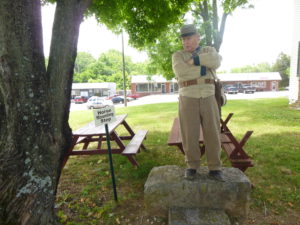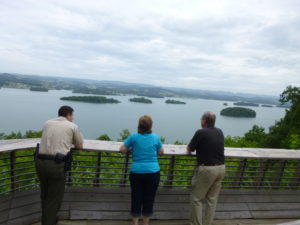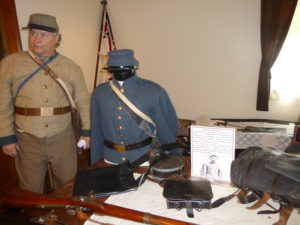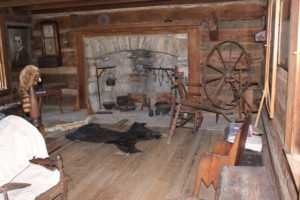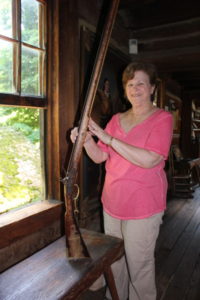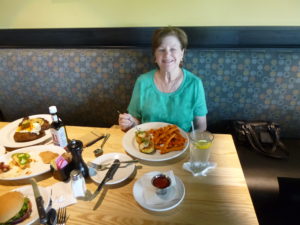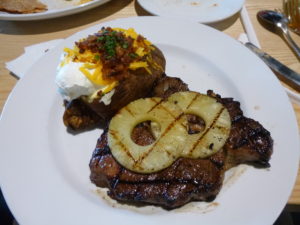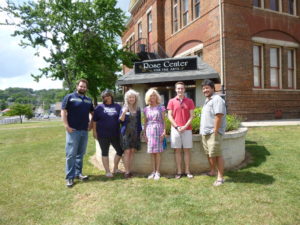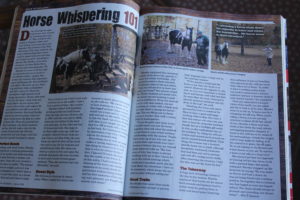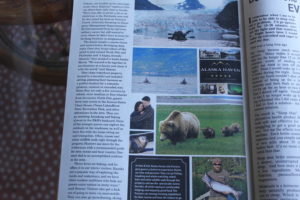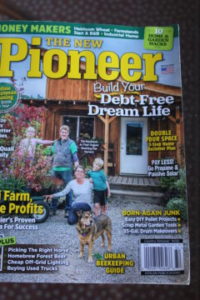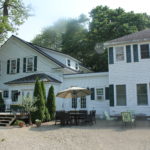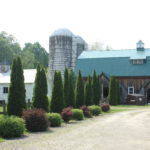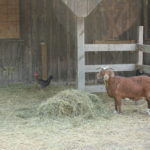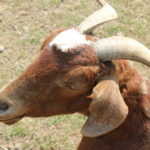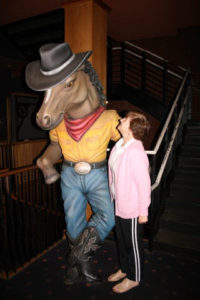
Marsha Mae Marks grew up on a beef, hog and dairy farm in Kankakee, and New Lenox, IL. There she developed a high interest in all things equestrian. Horses were used all over the farm—both draft and back-riders—to put up hay, feed cows in the winter, pull wagons for corn pickers, and take corn out to feed the livestock. She loved Sunday afternoon church picnics when her farm would treat city kids to a taste of farm-life. Working with draft horses, Marsha learned how a working partnership based on loyalty and understanding could exist between a human and an equine. Once she even trained a Holstein steer to saddle. “The animal never put on weight, and so it was not to be slaughtered. I didn’t have a horse, so I used that steer as a horse. He was 7-feet tall and I had to train him to kneel, so my 5-foot 5-inch body could get up on the saddle. I wish I had a picture of him,” she recalled.
Marsha worked with hundreds of riding horses and draft horses from the time she was 13-years old in 1965, until she was hurt in 2009, when she was kicked in the head and neck area by a client’s horse. At that time, she personally had 10 horses and colts.
After her recovery, she came to my farm 9-years years ago, with her recently widowed friend, Judy, her dog Chewy, and Miss Kitty, the only horse she had left after all her stock was sold to pay for her hospital and rehabilitation bills. She chose our farm and Crossville, as a place to live and enjoy the solitude and peace, the easy-to-work-in barn, and 2 acres of sweet-grass paddock. She believes in training by association. When I asked her where she learned so much about training horses, she told me, “My nature is not to force training on a horse, or any four-legged animal. Other trainers would toss a rope and tie a horse to a post and put on the saddle, then try to ride the ‘buck’ out of him. Problem with that is you taught the horse that it is OK to buck with a human on his back. I tried gentle training by voice and association every time a human was on the animal’s back. Everything you do with an animal makes a lasting impression. If the first thing he learns to do is buck, that is what he always thinks of first. I figured I’d teach the horse that the saddle is his friend. To do this safely, I had to break the training of the horse into smaller segments, so he could absorb knowledge without being rushed, and his first memories of his training were pleasant, not fraught with anxiety and stress.”
Marsha explained that stressing a horse shuts down its capacity to learn and retain knowledge, its horse-sense is short-circuited. Body language always plays a large role in the teaching regimen. “If the person is timid and the horse is not, then the horse is in control. However, the opposite is also true, so it is very important to match horse and human, and I did just that for more than 40-years. I learned to identify potential problems and nip them in the bud,” she said. Back through time of natural breeding and exposure to the wild are never truly taken out of them, she told me. So, “In order to have a working partnership you need to understand a horse’s instincts and how to harness them to your mutual benefit,” she explained. Once you understand a horse’s vision of his world, you can adapt and be open to a larger field of vision. Marsha went on to tell us, “A horse sees in a triangular, far-off way. When you’re riding a horse, you see and pay attention to about 20-30 feet ahead of you, whereas a horse sees hundreds of feet down the road, always anticipating potential dangers. A horse in the wild must be aware of his surroundings—where the cougar, wolf or bear might be hiding, or if the animal is in plain, far-off sight. He is not looking at the flowers and 4-leaf clovers as you are. To survive, a horse must take in a long view.” She showed me how her approach to training led her dog, Jesse, to sit with a pointed finger and gentle command. Marsha concluded by saying: “He was under no duress and had a choice; he was not being forced into a seating position. Extrapolate this to training any four-legged, or even two-legged animal. The choice should always be pleasant and rewarding, not threatening.”
